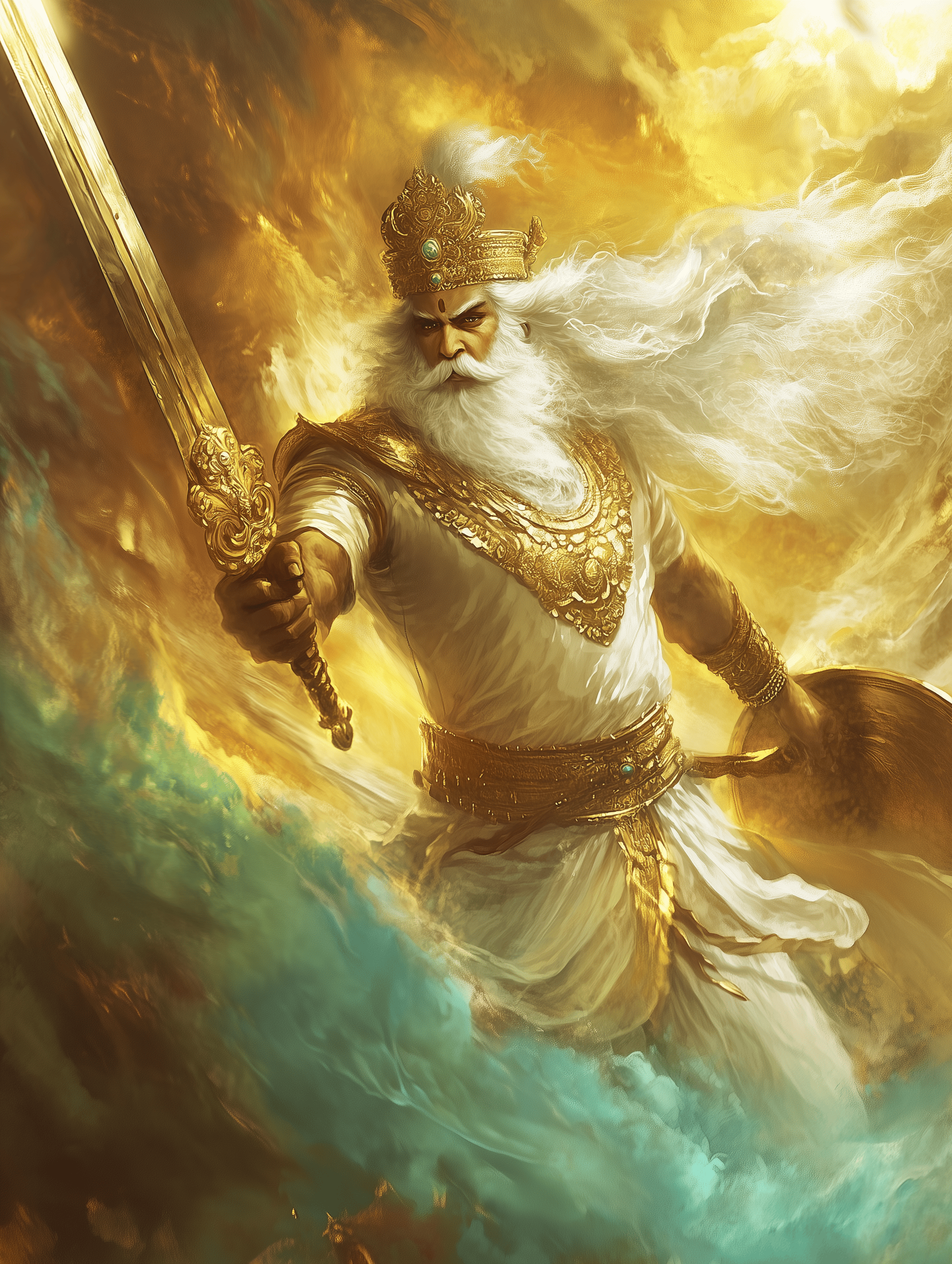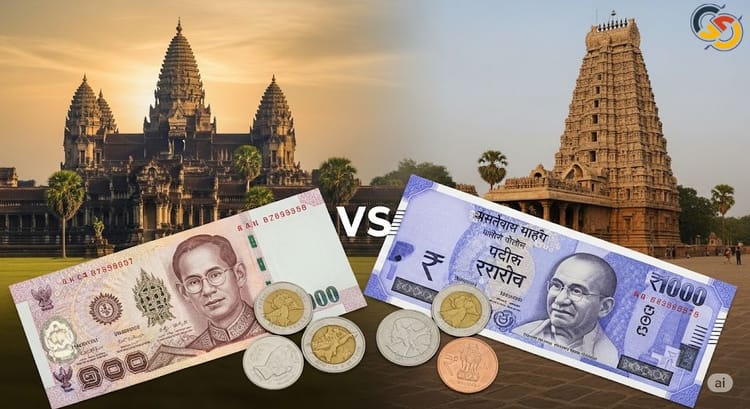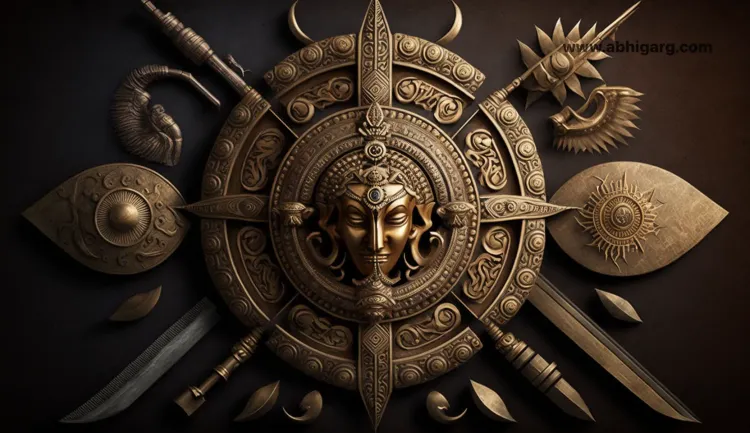Bhishma Pratigya: The Legendary Vow That Shaped the Mahabharata - A Complete Analysis

Few characters command as much reverence and complexity in the vast tapestry of Indian mythology and the epic Mahabharata as Bhishma, born Devavrata. His legendary vow, the Bhishma Pratigya, is a testament to filial duty, personal sacrifice, and unwavering dedication. This comprehensive exploration delves deep into the life, choices, and lasting impact of one of mythology's most enigmatic figures, whose decisions would ultimately shape the destiny of the Kuru dynasty and the great war of Kurukshetra.
The Divine Origins of Devavrata
Birth and Early Years
The story of Bhishma begins with an extraordinary birth, marked by divine intervention and cosmic significance. Born to King Shantanu of Hastinapur and the river goddess Ganga, Devavrata's arrival was preceded by a complex narrative of celestial promises and earthly consequences. In her divine wisdom, Ganga agreed to marry Shantanu under specific conditions that would later prove crucial to understanding Devavrata's destiny.
The circumstances of his birth were unique - he was the eighth son born to the couple but the only one to survive. His seven older brothers, all cursed Vasus (celestial beings), were liberated from their earthly existence by Ganga, who immersed them in her waters immediately after birth. This divine heritage would later manifest in Devavrata's extraordinary abilities and unshakeable principles.
Education and Training
Devavrata's education was as exceptional as his birth. Under the tutelage of legendary figures, he mastered various aspects of kingship, warfare, and spiritual knowledge:
- Brihaspati, the guru of the gods, taught him statecraft and political wisdom
- Parashurama, the sixth avatar of Vishnu, trained him in advanced warfare
- Sukracharya imparted knowledge of divine weapons and strategic warfare
- Vasishtha provided spiritual guidance and teachings of the Vedas
This comprehensive education shaped him into a perfect heir - skilled in warfare, wise in governance, and deeply rooted in dharma (righteousness). His training under multiple gurus gave him mastery over celestial weapons (divya-astras) and earthly warfare techniques, making him one of the most formidable warriors of his time.
The Path to the Pratigya
The Return of Shantanu's Love
Years after Ganga's departure, King Shantanu encountered Satyavati, a fisherwoman whose beauty and grace captured his heart completely. However, this love story wasn't destined for a simple conclusion. Satyavati's father, the chief of fishermen, posed conditions that would challenge the very foundation of the Kuru dynasty:
- Only Satyavati's children would inherit the throne
- Her children's claim to the kingdom would be uncontested
- The existing heir (Devavrata) must relinquish all claims to the throne
The Weight of Decision
When Devavrata learned of his father's predicament, he was at a crucial crossroads. He witnessed how his father's love for Satyavati had begun to consume him, affecting both his personal happiness and his ability to rule effectively. The young prince realized that this situation demanded more than a simple renunciation of the throne.
The Momentous Vow
In what would become one of the most pivotal moments in the Mahabharata, Devavrata took not one but two solemn vows:
- He renounced his claim to the throne of Hastinapur
- He took a vow of lifelong celibacy, ensuring that no future children of his could ever contest the claims of Satyavati's descendants
This double pronouncement, made with such fierce determination that it shook the heavens, earned him the name "Bhishma" - he who takes a terrible oath. The gods showered flowers from heaven and blessed him with the power to choose the time of his death (Ichcha Mrityu).

The Implications of the Vow
Immediate Impact
The immediate consequences of Bhishma's vow were positive. Satyavati became the queen of Hastinapur, and King Shantanu was overjoyed. So moved was he by his son's sacrifice that he blessed Bhishma with the boon of death by choice - a blessing that would later prove to be both a gift and a curse.
Long-term Consequences
However, the long-term implications of the Bhishma Pratigya were far more complex and far-reaching than anyone could have anticipated:
- Political Implications
- The vow created a unique power dynamic where Bhishma, though not the king, wielded significant influence
- It established a precedent of personal sacrifice for the greater good of the dynasty
- The absence of Bhishma's lineage would later contribute to succession crises
- Personal Impact
- Bhishma's celibacy vow meant he could never experience family life
- His role became that of an eternal guardian and advisor
- The vow placed him in numerous moral dilemmas throughout his life
The Guardian of the Dynasty
Role as Protector
Following his vow, Bhishma dedicated himself entirely to protecting and nurturing the Kuru dynasty. His responsibilities included:
- Training successive generations of princes
- Protecting the kingdom's borders
- Providing counsel on matters of state
- Managing diplomatic relations with other kingdoms
- Upholding the dynasty's traditions and values
Critical Decisions and Interventions
The Marriage of Vichitravirya
One of Bhishma's most controversial actions was his involvement in arranging marriages for his half-brother Vichitravirya. He attended the swayamvara of the princesses of Kashi - Amba, Ambika, and Ambalika - and won them through combat. However, this action would have far-reaching consequences, particularly concerning Princess Amba.
The Amba Incident
The incident with Princess Amba became one of the most tragic consequences of Bhishma's vow. When Amba revealed her love for another king, Bhishma tried to rectify the situation, but circumstances led to her rejection by both her lover and Vichitravirya. This led to Amba's vow of vengeance against Bhishma, culminating in her rebirth as Shikhandi, who would play a crucial role in Bhishma's eventual fall.
The Kurukshetra War: The Ultimate Test
Position in the War
The Kurukshetra War presented Bhishma with his greatest moral challenge. Despite personally favoring the Pandavas' cause, his vow compelled him to fight for the Kauravas. This created a complex situation where:
- He had to fight against those he considered righteous
- He was bound by duty to protect the throne of Hastinapur
- His presence significantly strengthened the Kaurava army
- He had to balance his roles as a warrior and moral guide
Strategic Decisions
During the war, Bhishma's actions were marked by both brilliance and internal conflict:
- Military Strategy
- He organized the Kaurava army into the impenetrable Garuda Vyuha
- Led successful campaigns against the Pandava forces
- Demonstrated unparalleled skill in warfare
- Managed to protect key Kaurava warriors while inflicting heavy casualties on the enemy
- Moral Considerations
- Refused to kill any of the Pandavas
- Provided strategic advice to both sides
- Maintained his principles even in warfare
- Revealed the secret of his defeat to the Pandavas
The Final Battle
The culmination of Bhishma's participation in the war came on the tenth day, in a battle that would become legendary:
- Arjuna, with Krishna's guidance, used Shikhandi as a shield
- Bhishma refused to fight against Shikhandi, recognizing him as the reborn Amba
- This allowed Arjuna to pierce Bhishma with countless arrows
- Bhishma fell but did not die, choosing to wait for the auspicious time to leave his body

The Bed of Arrows
Final Days
Bhishma's time on the bed of arrows represents one of the most poignant episodes in the Mahabharata:
- He lay on a bed created by Arjuna's arrows
- Used his boon of Ichcha Mrityu to wait for Uttarayan
- Continued to teach dharma and politics to those who visited him
- Witnessed the completion of the war from his position
Final Teachings
During this period, Bhishma imparted crucial knowledge:
- The Vishnu Sahasranama to Yudhishthira
- Lessons on righteousness and governance
- Insights into dharma and moral duty
- Wisdom about life, death, and the eternal nature of the soul
Legacy and Philosophical Implications
Impact on Indian Philosophy
Bhishma's life and choices continue to influence Indian philosophical thought:
- Dharmic Principles
- The complexity of moral choices
- The balance between personal desires and duty
- The importance of keeping one's word
- The eternal nature of dharma
- Leadership Lessons
- The importance of sacrifice in leadership
- The balance between power and responsibility
- The role of wisdom in governance
- The significance of timing in decision-making
Modern Relevance
The story of Bhishma continues to resonate in contemporary times:
- Teaches the importance of commitment and integrity
- Demonstrates the complexity of moral choices
- Shows the impact of personal sacrifice for the greater good
- Illustrates the importance of wisdom in leadership
Conclusion
The Bhishma Pratigya remains one of the most significant vows in Indian mythology, representing the complex interplay between personal choice, duty, and destiny. Bhishma's life is a testament to unwavering dedication and the sometimes tragic consequences of absolute adherence to principle. His story continues to inspire and provoke thought about the nature of duty, sacrifice, and moral choice in personal and public life.

Frequently Asked Questions
- What was the Bhishma Pratigya, and why did Devavrata take this vow?
The Bhishma Pratigya was a twofold vow taken by Devavrata, comprising renouncing his claim to the throne and pledging lifelong celibacy. He took this vow to enable his father, King Shantanu, to marry Satyavati by ensuring her future children would have an uncontested claim to the throne. - How did Bhishma's vow affect the Mahabharata's main events?
The vow had far-reaching consequences, leading to various succession crises in the Kuru dynasty. Without heirs, Bhishma had to serve as a guardian and advisor, ultimately fighting against the Pandavas in the Kurukshetra War despite personally favoring their cause. - What special powers or boons did Bhishma receive after taking his vow?
After taking his vow, Bhishma received the boon of Ichcha Mrityu (death by choice) from his father, allowing him to choose the time of his death. The gods also blessed him and gained immense respect and authority in the kingdom. - Why couldn't Bhishma break his vow during the Kurukshetra War?
Bhishma was bound by his dharma and the sanctity of his vow. Breaking it would have gone against his principles and the essence of his character, built on unwavering commitment to his words. - What role did Princess Amba play in Bhishma's story?
Princess Amba was one of the three princesses Bhishma won in combat for his half-brother. When she couldn't marry her chosen love due to Bhishma's actions, she vowed revenge and was later reborn as Shikhandi, who played a crucial role in Bhishma's defeat. - How did Bhishma finally meet his end in the Mahabharata?
Bhishma was defeated when Arjuna used Shikhandi as a shield, knowing Bhishma wouldn't shoot at Shikhandi (the reborn Amba). Though pierced by countless arrows, he used his boon to remain alive until the auspicious time of Uttarayan. - What teachings did Bhishma impart while on his bed of arrows?
While lying on the bed of arrows, Bhishma shared numerous teachings, including the Vishnu Sahasranama, lessons on righteousness, governance, and dharma, and crucial advice about life and death to the Pandavas and Kauravas. - How does Bhishma's character continue to influence Indian philosophy and culture?
Bhishma's life and choices continue to serve as examples of unwavering dedication, moral complexity, and the importance of dharma. His story influences discussions about duty, sacrifice, and ethical decision-making in contemporary times. - What were the immediate consequences of Bhishma's vow for the Kuru dynasty?
The immediate effects included Satyavati becoming queen, securing the succession for her future children, and establishing Bhishma as the dynasty's permanent guardian rather than its ruler. - How did Bhishma's military training and education influence his role in the Mahabharata?
His exceptional training under various gurus made him one of the most formidable warriors of his time. In contrast, his wisdom and knowledge made him an invaluable advisor to multiple generations of the Kuru dynasty.






